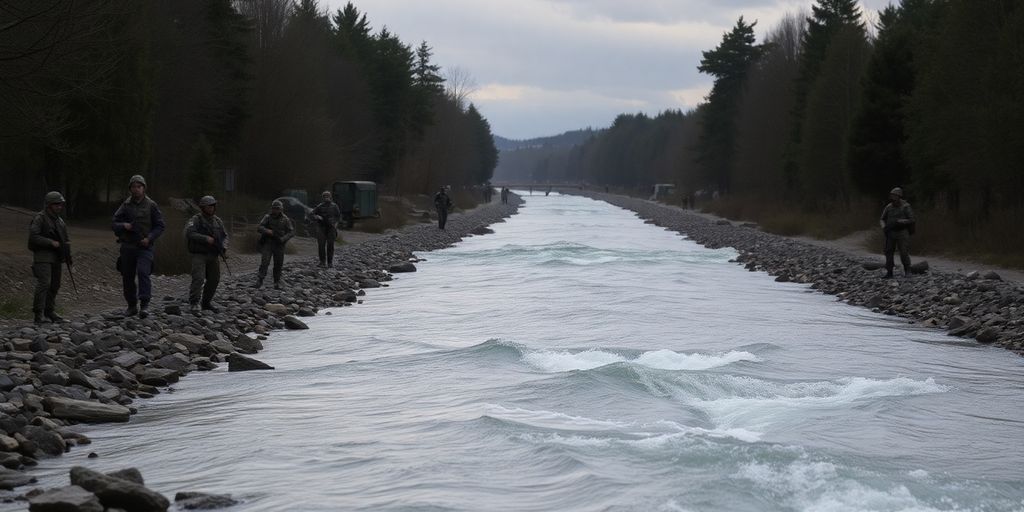A recent explosion targeting a canal in Kosovo has ignited a fierce exchange of accusations between Serbia and Kosovo, with both sides denying responsibility. Serbian President Aleksandar Vucic has labeled the incident a "hybrid attack" against Serbia, while Kosovo’s Prime Minister Albin Kurti has condemned it as a terrorist act orchestrated by Serbia.
Key Takeaways
- The explosion occurred near Zubin Potok, damaging critical infrastructure supplying water and electricity to Kosovo.
- Serbia’s President Vucic denies any involvement, claiming Kosovo is conducting a hybrid attack against Serbia.
- Kosovo’s government has arrested several suspects in connection with the blast.
- Tensions between the two nations have escalated, with both sides trading accusations.
Incident Overview
The explosion took place late on Friday near Zubin Potok, an area in northern Kosovo predominantly inhabited by ethnic Serbs. The blast damaged a canal that supplies water to two coal-fired power plants, which are crucial for Kosovo’s electricity generation. This incident has raised alarms about the stability of essential services in the region, affecting hundreds of thousands of residents.
Accusations Fly
In the wake of the explosion, Kosovo’s Prime Minister Albin Kurti accused Serbia of masterminding the attack, labeling it a terrorist act. He stated that the incident was part of a broader strategy by Serbia to undermine Kosovo’s stability. Vucic, in response, rejected these claims, asserting that the accusations were an attempt to justify a crackdown on ethnic Serbs in Kosovo.
Security Measures Implemented
Following the explosion, Kosovo’s government announced enhanced security measures to protect critical infrastructure. The Security Council approved additional patrols around vital facilities, including bridges and canals, to prevent future incidents. Police have also arrested several individuals suspected of involvement in the blast, seizing military-grade equipment during their operations.
Historical Context
The relationship between Serbia and Kosovo has been fraught with tension since the late 1990s, following a war that led to Kosovo declaring independence in 2008—a move that Serbia has never recognized. The recent explosion is the latest in a series of violent incidents in northern Kosovo, where ethnic tensions remain high. Kosovo is scheduled to hold parliamentary elections on February 9, which may further complicate the political landscape.
Conclusion
As both Serbia and Kosovo continue to exchange accusations, the situation remains volatile. The explosion has not only damaged critical infrastructure but has also reignited historical grievances between the two nations. With both governments preparing for potential escalations, the international community is closely monitoring the developments in this tense region.
Sources
- Serbia Denies Behind Kosovo Blast, Says Attack Aimed At Belgrade, The Defense Post.
- Kosovo, Serbia engage in war of words after canal blast | National | news-shield.com, Barron News-Shield.
- Serbia denies behind Kosovo blast, says attack aimed at Belgrade | National News | mdjonline.com, Marietta Daily Journal.
- Serbia President Denounces ‘Hybrid Attack’ Against Belgrade After Kosovo Blast | Barron’s, Barron’s.
- Serbia rejects responsibility for a water supply explosion in Kosovo as tensions rise | World | indianagazette.com, Indiana Gazette Online.

